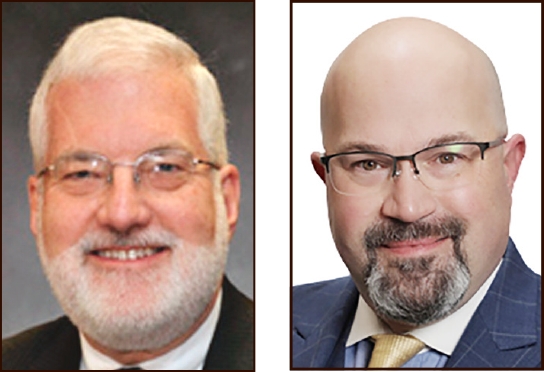Attorney's Column
Court: A License Is a Prerequisite To Recovering Contract Monies
By THOMAS H. WELBY, P.E., ESQ., and GREGORY J. SPAUN, ESQ.

The case of Electrical Contracting Solutions Corp. v Trump Village Section 4 Inc., reported here last June reminded contractors that, where a license is required to perform work, it is also a requirement to recover in court for such unpaid work. In that case, an appellate court held that where the contractor that entered into the contract for licensed work was not licensed, it was not able to recover—even though it performed that work with a licensed subcontractor.
A similar matter, Mikoma Electric, LLC v Otek Builders, LLC, came to the same appellate court, reinforcing this holding, effectively advising that Trump Village was not a one-off decision, and that the contracting party must indeed hold a license where one is required (for example, a home improvement contractor’s license) if it wishes to be able to resort to the courts to recover unpaid monies.
Background
Otek Builders was the general contractor for a number of construction projects for WeWork Companies in New York City. Otek subcontracted with Mikoma Technology of Power and Lights to perform electrical work with respect to a number of these WeWork properties, and it subcontracted with Mikoma Electic LLC to perform similar work at the other properties. Mikoma Electric was licensed by the city as an electrical contractor, but Mikoma Tech was not. Notwithstanding, Mikoma Electric pulled the permits for all of the WeWork properties—including those in Mikoma Tech’s scope of work—and its employees performed all of the work on both the Mikoma Electric and the Mikoma Tech projects. Further, Mikoma Electric’s employees were supervised on both projects by Mikoma Electric’s treasurer, who is a New York City Licensed Master Electrician employed by Mikoma Electric.
After the work was complete, Mikoma Tech filed mechanic’s liens for unpaid work (as did Mikoma Electric), and both commenced a lawsuit to foreclose those liens. Upon being served with the complaint, Otek moved to dismiss Mikoma Tech’s claims and discharge its liens, arguing that Mikoma Tech’s failure to obtain the required license was fatal to both the mechanic’s liens and its claims. In opposition to the motion, Mikoma Tech noted that the permits were pulled by the licensed electrical contractor (Mikoma Electric), the work was performed by its employees, and at all times the work was supervised by Mikoma Electric’s New York City Licensed Master Electrician.
Decision
The court dismissed Mikoma Tech’s claims and discharged its mechanic’s liens, holding that Mikoma Tech’s failure to obtain a license was fatal to maintaining either the mechanic’s liens or a lawsuit to recover for the unlicensed work. The court reinforced that an informal relationship between the unlicensed and licensed entities whereby the unlicensed entity performs the work using a licensed entity’s employees, permits, and licensed electrician was insufficient to bring the unlicensed entity into the licensure scheme to permit it to either file a mechanic’s lien, or a lawsuit, to recover for unpaid, unlicensed work.
Comment
While the decision was clearly bad news for Mikoma Tech, the appellate court’s citation to—and reliance upon the case first reported in this column last June—serves to clarify and limit that holding. Specifically, in Trump Village, there was an informal subcontracting arrangement between the licensed and unlicensed entity, and the decision seemed to stand for the proposition that a general contractor itself may require a license to subcontract licensed work, and that reliance upon the subcontractor’s license, alone, was not sufficient. Here, however, by upholding the claims of the licensed entity, Mikoma Electric, while dismissing those of the unlicensed entity, the appellate court clarified that not every contractor in the chain of privity requires a license—just the one performing the work. Accordingly, the general contractor here, Otek (which a web search reveals is also not a licensed electrical contractor) was able to subcontract the work to a licensed electrical contractor (Mikoma Electric).
The problem here arose when Otek retained a similarly unlicensed subcontractor (Mikoma Tech) to perform the work, and Mikoma Tech tried to get around the fact that it was not licensed by later patching facts together (by having Mikoma Electric pull the permits, using Mikoma Electric’s employees, and having Mikoma Electric’s licensed master electrician supervise the work). The appellate court held that such patchwork was not sufficient.
Left open for now, however, is the question as to whether Mikoma Tech could have gotten around the issue by formally subcontracting its entire scope of work to a licensed electrical contractor (either Mikoma Electric or another licensed entity).
As we cautioned in the wake of Trump Village, contractors would be well advised to make sure that any licensed work is directly undertaken by a licensed contractor (and the retention is formally documented with a subcontract, and not the type of informal arrangement that was present here). We will continue to keep you updated as to any further developments or clarifications that are issued by the appellate courts. In the meantime, if you have any questions about how to tailor your business to operate in the context of the licensing regulations, a consultation with experienced construction counsel could prove helpful.
About the authors: Thomas H. Welby is an attorney, a licensed professional engineer and General Counsel to the CIC and the BCA. He is the Founder of and Senior Counsel to the law firm Welby, Brady & Greenblatt, LLP. Gregory J. Spaun, Esq., is General Counsel to the Queens and Bronx Building Association and partner with the WBG LLP.
